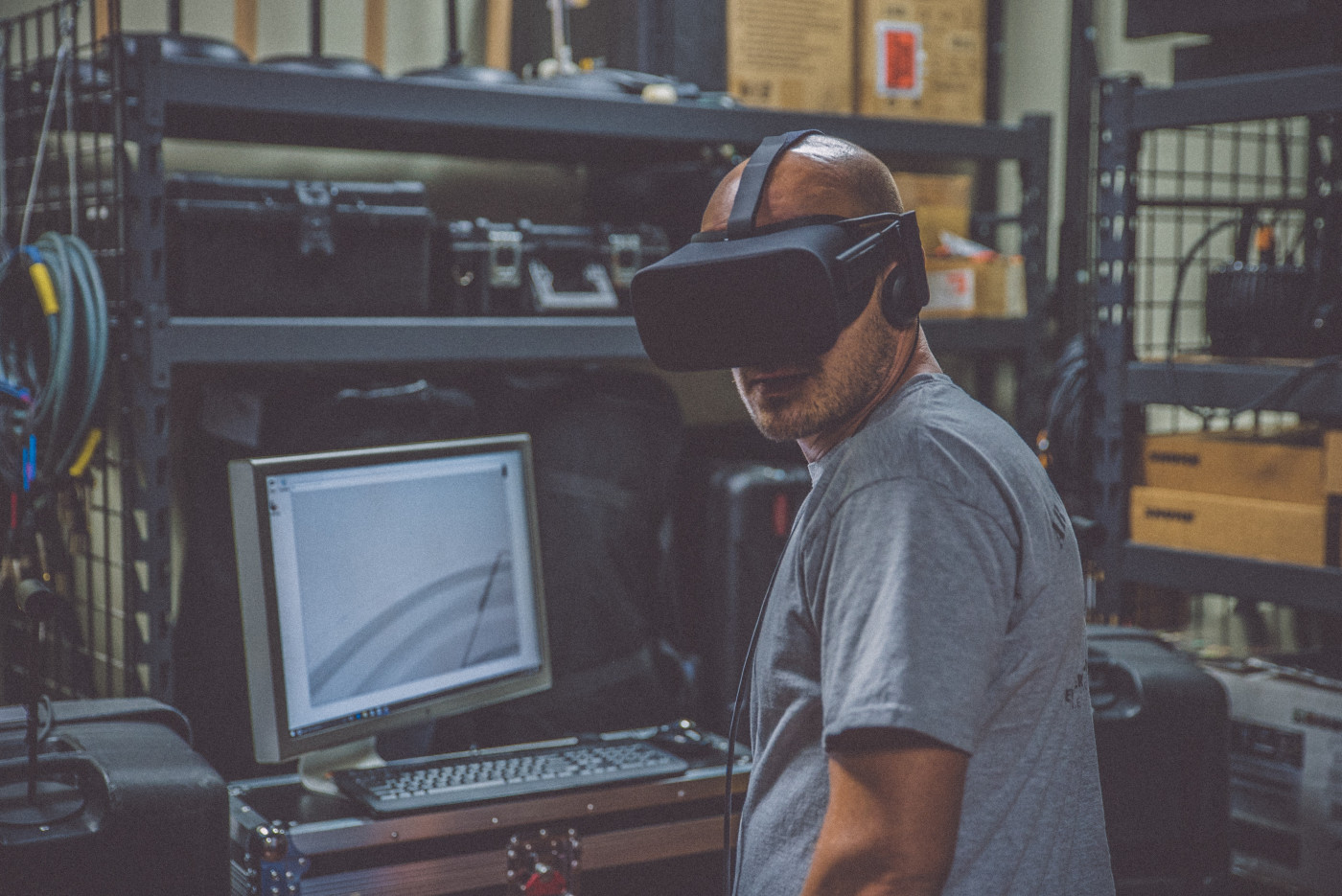Virtual Reality May Improve Quality of Life of Hospitalized Dementia Patients, Study Says

Virtual reality may help improve the quality of life for people with dementia, including those with Alzheimer’s disease, by stimulating them to recall past memories, reduce aggressive behavior, and connect with caregivers, a study suggests.
The study, “Bring the Outside In: Providing Accessible Experiences Through VR for People with Dementia in Locked Psychiatric Hospitals,” was published in Proceedings of the SIGCHI Conference on Human Factors in Computing Systems.
People with dementia slowly start to lose their autonomy, becoming increasingly unable to engage in daily activities and make decisions for themselves. Hospitalization is often required for these patients. However, the environment in a psychiatric hospital can often cause depression or aggression toward the patient’s own self or others.
Virtual reality in mental healthcare has shown positive outcomes for several disorders, including for individuals with autism and schizophrenia, post-traumatic stress disorder, eating disorders, or different phobias.
Researchers at the University of Kent in the U.K. evaluated whether virtual reality could promote the well-being of individuals with moderate to severe dementia living in a psychiatric hospital.
The study enrolled eight patients, six men and two women between the ages of 41 and 88 years old, living with dementia. Two of them were diagnosed with Alzheimer’s disease, two with unspecified dementia, two with Huntington’s disease-associated dementia, one with mixed cortical and subcortical vascular dementia, and one with frontotemporal dementia.
Each patient used a virtual reality headset and was asked to choose one of five virtual environments to “visit,” which included a cathedral, a forest, a sandy beach, a rocky beach, and a countryside scene. They underwent 360-degree virtual reality sessions with a maximum duration of 15 minutes, accompanied by a caregiver. Patients could stop the virtual reality at any time or choose not to use it.
Afterward, the researchers observed the patients for 15 minutes to measure post-exposure effects. Patients completed a total of 16 sessions.
One of the study’s key findings was in how virtual reality helped patients “escape” their limited environment and recall old memories. One patient, for example, recalled a holiday after seeing a bridge during the virtual reality session. This also allowed caregivers to better understand the lives of patients, which could help improve their interactions.
Patients’ reaction to the virtual sessions were positive, with one patient saying, weeks later, that it had been “brilliant.” The virtual session improved his mood and motivation to engage in other activities such as art sessions.
Importantly, some aggressive behaviors were nearly eliminated after these sessions. Researchers believe that virtual reality may help to physically isolate the patients from the environment that could be triggering aggressiveness.
Patients also experienced a strong sense of presence and safety. In a post-session interview, one of the patients said, “I was quite happy to be on my own.”
While some patients decided to explore different scenarios during their virtual sessions, others always chose the same environment.
“We introduce the idea of using VR [virtual reality] as a ‘personal space’ especially for individuals in long-term care,” the researchers wrote. “We could explore how to capitalise on the use of VR as a cognitive stimulation tool in a non-task-oriented manner especially for [people with dementia] who may find task-oriented assessments difficult.”
“VR can clearly have positive benefits for patients with dementia, their families and caregivers,” Jim Ang, PhD, from the University of Kent School of Engineering and Digital Arts and an author of the study, said in a press release. “It provides a richer and more satisfying quality of life than is otherwise available, with many positive outcomes.”
“With further research it will be possible to further evaluate the elements of [virtual environments] that benefit patients and use VR even more effectively,” he added.






